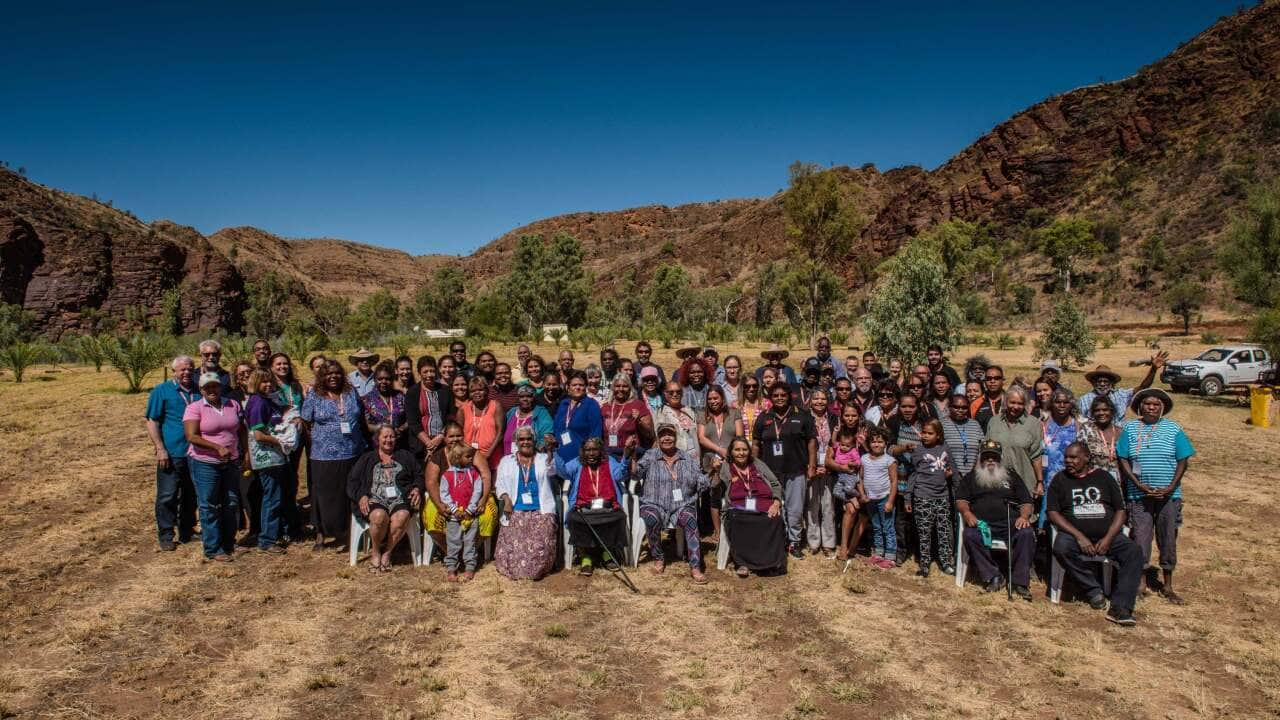Forum convenors for the Central Australian community were Central Land Council's Director, David Ross, and Anyinginyi Health Aboriginal Corporation's General Manager, Barbara Shaw who brought 100 local Centralians together with the Referendum Council Co-Chairs to run through a set program for each community on the topic of the proposed Constitutional Change.
However, participants' concerns were about the long-term impact of the intervention in the Northern Territory, the continuing control of their lives, loss of language, culture and land, and due long term consideration of a Treaty and the need for Indigenous voices in parliament.
The Referendum Council heard passionate Indigenous Centralians talk about changing the Australian Constitution.
Co-Chair Pat Andersen said like all previous discussions a strong theme emerging is to ensure that the opportunity to make substantial change is not wasted nor merely symbolism.
"We're rejecting symbolism that's a minimalist approach, it has to be a substantive change." said Pat Anderson.
"Why would you go to all the trouble of holding a Referendum and costing all this money, just for some kind of, not that symbolism isn't important, it is, but on itself and alone, it's pointless it doesn't mean anything it doesn't mean change. It just means that for a few seconds people get a warm feeling about it."
Co-Convenor of the meeting, David Ross said it's clear from the discussions that the intervention has left a myriad of controls that still affect their lives, culture, language, and land. He said the impact of the Howard government's Intervention in the Northern Territory remains prominent in the minds of Territorians when thinking about constitutional reform.
"[Territorians want to know] how to entrench their rights better, rather than the Commonwealth having the power to take away their rights, if and when the Commonwealth determines it is a good idea, without discussing it with people. Our people have that ability to see through the bully tactics of non-Aboriginal people when concerning their rights," said David Ross.
Centralians were also keen to have a mature conversation about how the Referendum might precede a Treaty and, practically, give them a voice in parliament.
"While people are very passionate about a Treaty they're passionate about a lot of things, they certainly highlighted a lot of the priorities and certainly one of them is representation in parliament. But, how do we achieve that? How do we do that? How do we get that representation given the differences in the makeup and the cultural fabric of aboriginal people right across the country?" said Ms Shaw. Community discussions will continue in Adelaide, Brisbane, and the Torres Strait before finishing with a Constitutional Convention at Uluru from the 24th to the 26th of May.
Community discussions will continue in Adelaide, Brisbane, and the Torres Strait before finishing with a Constitutional Convention at Uluru from the 24th to the 26th of May.

Anyinginyi Health Aboriginal Corporation's General Manager and Co-Convenor of the Referendum Council, Barbara Shaw Source: NITV News
NITV will be covering all discussions in the lead up to the finale in May.









